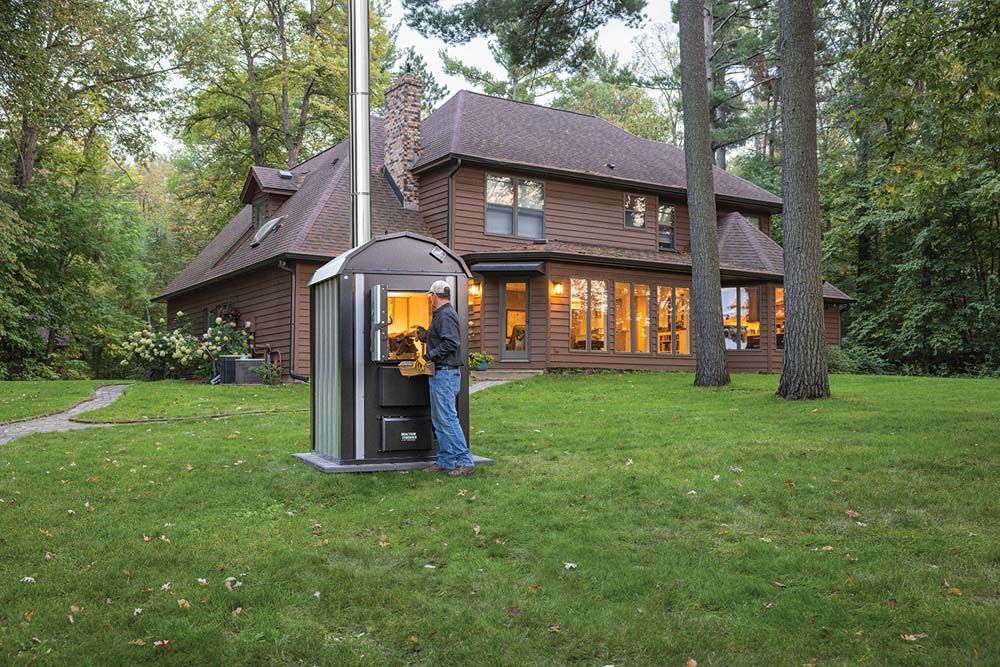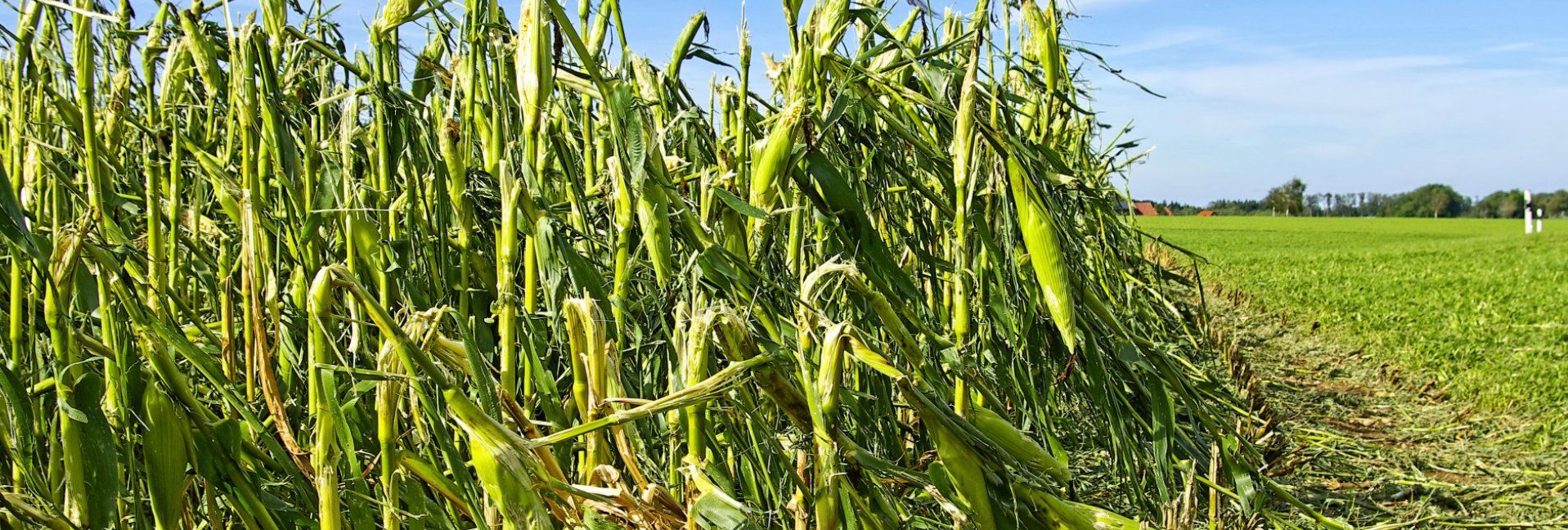A How-To for Hobby Farms
Fitch Pharm Farm shows the way for weekend farmers
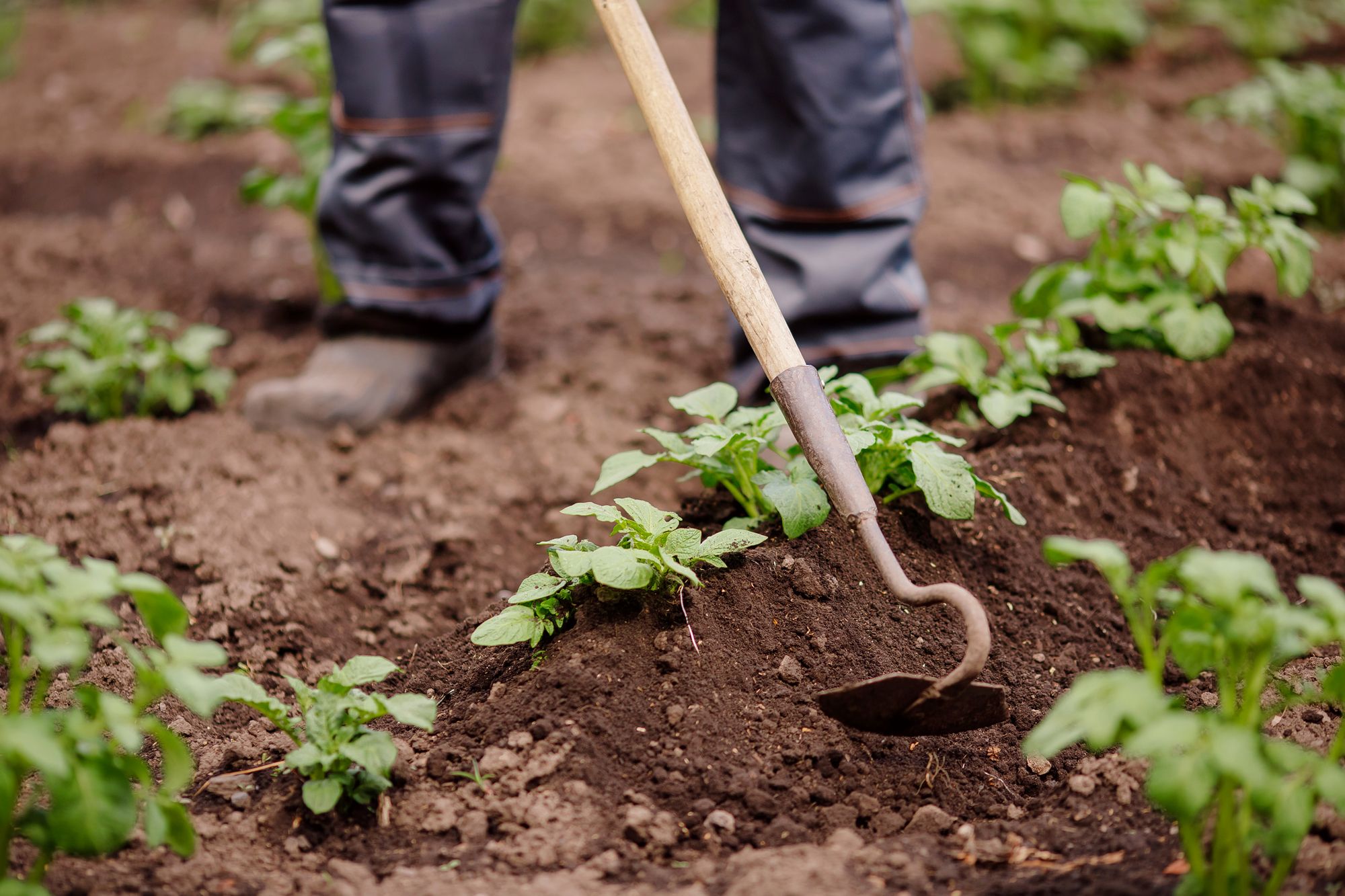

We all own a shirt that feels just right, one we go back to time and again. For Doug Fitch, his comfy shirt was being a farmer.
Doug has been a professional pharmacist in Ashland, Ohio for more than three decades, retiring only a couple of years ago—but his career as a grower of things to eat began at an early age.
“I was ten years old when I had my first farm experience,” Doug states on his website—in this case, growing potatoes and sweet corn from a large garden shared with two neighbors.
One neighbor, Ivan, pointed out that they might not have much a crop if the weeds weren’t removed so Doug jumped in and pulled all the weeds, just in the hope of an abundant crop.
It also started his hobby farm career growing things as chemical-free as possible.
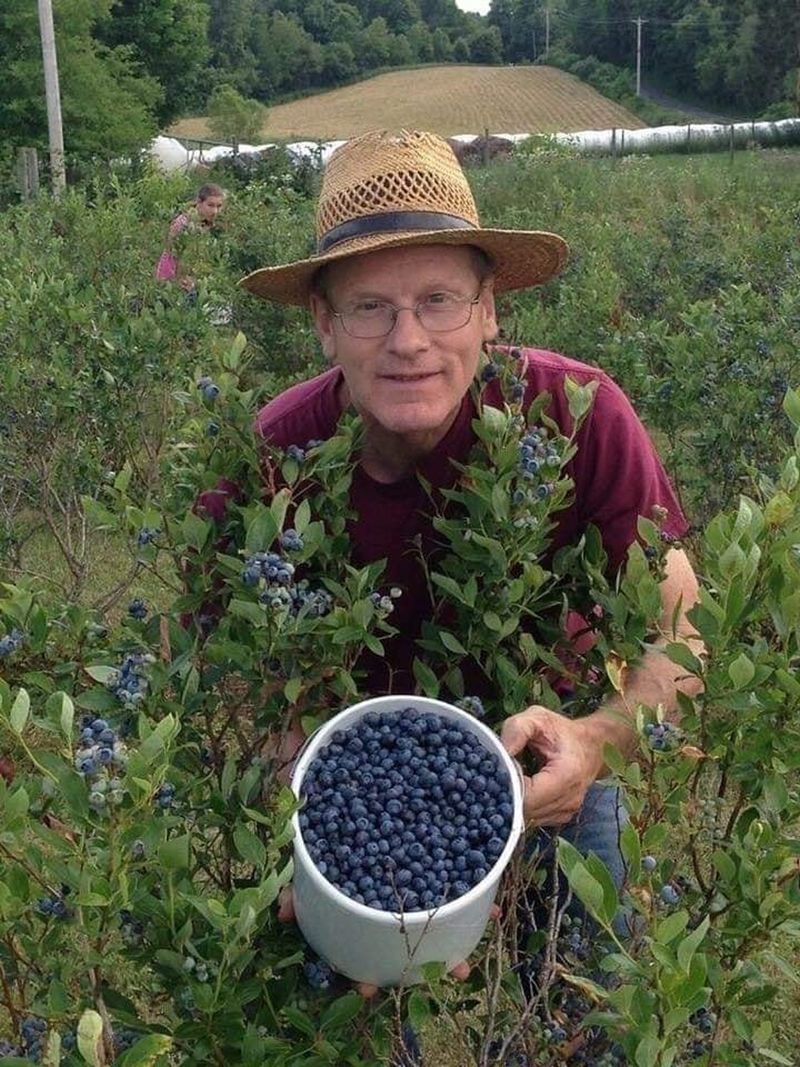
Summertime vacations at his great-grandparents’ dairy farm exposed him to the rhythm of agriculture: Up early for milking, taking care of crops during the day, and milking again later in the day. “But for me it was paradise,” Doug says.
Doug began raising chickens, bringing him closer to farming. He and his mother would sell the eggs, and to keep the birds fed, he would glean neighbor’s harvested fields for spilled and abandoned corn. Sometimes he would collect enough to sell back to the farmer!
By senior year, he was raising more than 100 free-range chickens.
Vocation or avocation
Doug had his heart set on farming until school aptitude tests suggested he would do well in health care, another area in which he had an interest.
When counselors pointed out there would soon be a shortage of registered pharmacists—suggesting good, high-paying jobs—Doug knew there was a decision to make. Would it be farming or college and a pharmacy career?
He sold his chickens to pay for college and set farming aside…for a while.
After graduation and passing tests to become a registered pharmacist, Doug realized the lure of farming was drawing him back.
Mentors for years
When a small 30-acre farm emerged for sale in 1987, he snapped it up. That’s when the learning began.
The Fitch family—which included his father, Marshall, and seven siblings—was enlisted to help practically from Day One. Doug initially tried raising conventional commodity crops and cattle, but realized as a part-time farmer that wasn’t going to work.
For one thing, he couldn’t set the price for anything he raised, and found himself repeatedly unable to justify the work for the amount of cash flow it was generating.
The solution, he realized, was to diversify so he wouldn’t have to wait for autumn harvest to generate income.
So about 25 years ago, Doug decided to try other things. Instead of crops like corn and soybeans, he moved to fresh vegetables and was “huge into rhubarb” for a while.
Mentors in the form of friends, successful farmers nearby, and experts have helped Doug and his family move to different crops and offerings that could keep cash flowing. And remember, this is while he is holding down his “day job” as a pharmacist.
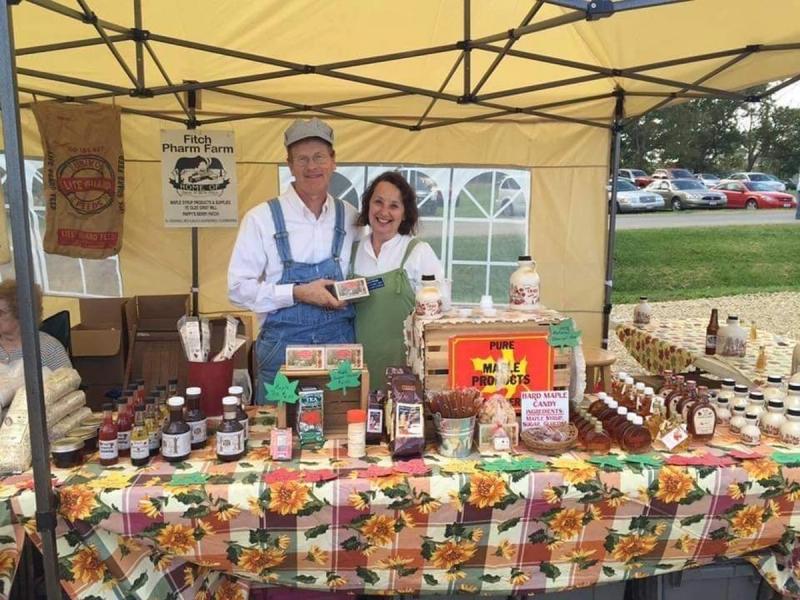
Diversity today
A visit to Fitch Pharm Farm shows what initiative and entrepreneurial spirit can do (although manpower from his family and the native smarts to figure out how to grow a hobby farm are crucial to success, too).
His crops read more like an established fruit garden: U-pick blueberries, red and black raspberries, sour cherries, buckwheat for flour, and alfalfa, which his honey bees use to make while pollinating his crops.
Buckwheat and other grains are ground in their own mill right on the farm, and go into pancake mixes and more.
All of this is grown organically, thanks to the family’s unending research and self-education into the best ways to do things.
The Fitches also moved into making maple syrup from the many hardwoods on their farm. This is a labor-intensive process in the late winter and early spring, but pays dividends all year long through syrup and maple product sales.
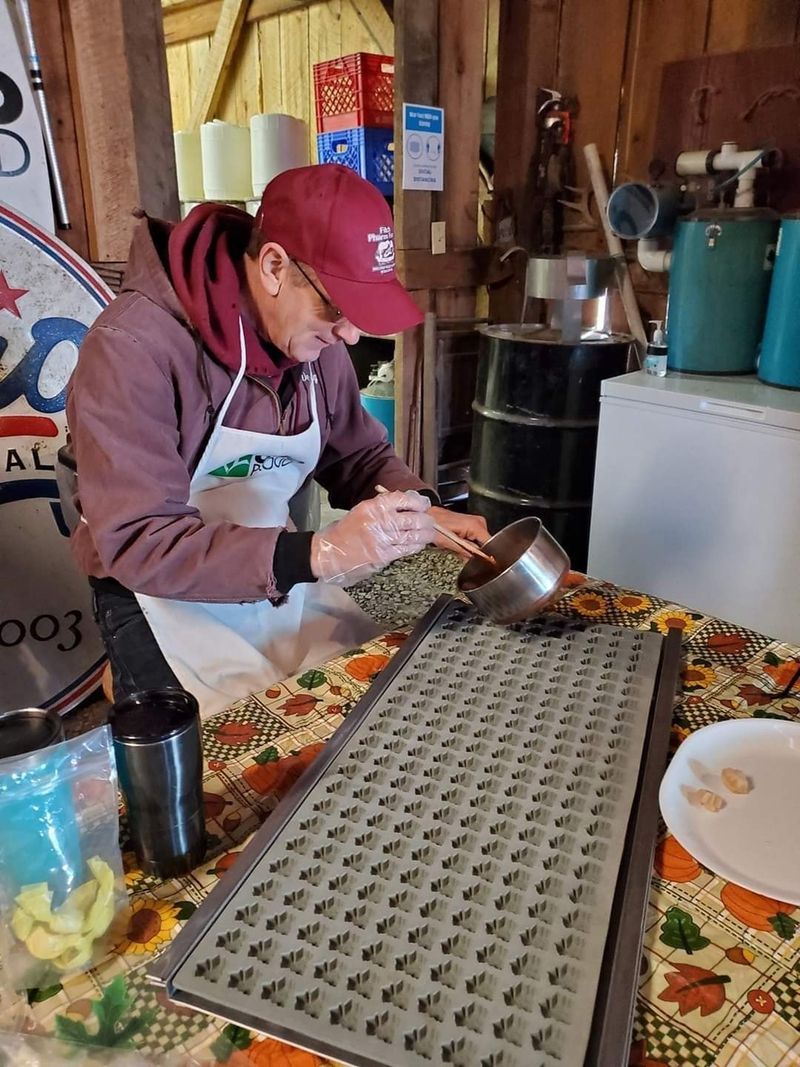
Noticing the area is heavily wooded, Doug also began selling mapling equipment to others.
Free-range chickens still populate the farm, with their eggs for sale at the farm store, open six days a week.
It remains a labor intensive business, especially in the fall when apple picking and apple cider pressing takes all hands. The Fitch Pharm Farm workers include Doug and his wife Beth, son Ben and his wife Lauren and their three children, Mark, Jill and her husband Ian.
Hobby farm checklist
Starting your own hobby farm, or thinking about doing so? There are some key learnings from the Fitch Pharm Farm odyssey:
Don’t expect to succeed with regular commodity crops—find products where you can control the price of what you sell.
Be entrepreneurial and plan on failing with ideas until your product mix works for you. Similarly, be alert for market changes. The Fitch ’s foray into rhubarb ended when others in the area planted it too—time to move on.
Learn from others. If you see a problem on your own acreage that someone else has solved, contact them for advice. Mentors are not age-restricted—a retiree can learn from a 30 -year-old and vice versa.
Enlist help. Any farming endeavor can be labor intensive, so bringing in family and friends for temporary, part-time, or seasonal work spreads the workload. Even the Fitch Pharm Farm family hires outsiders when needed.
Market yourself— online, in newspapers, flyers, or by being big and obvious at farmers markets.
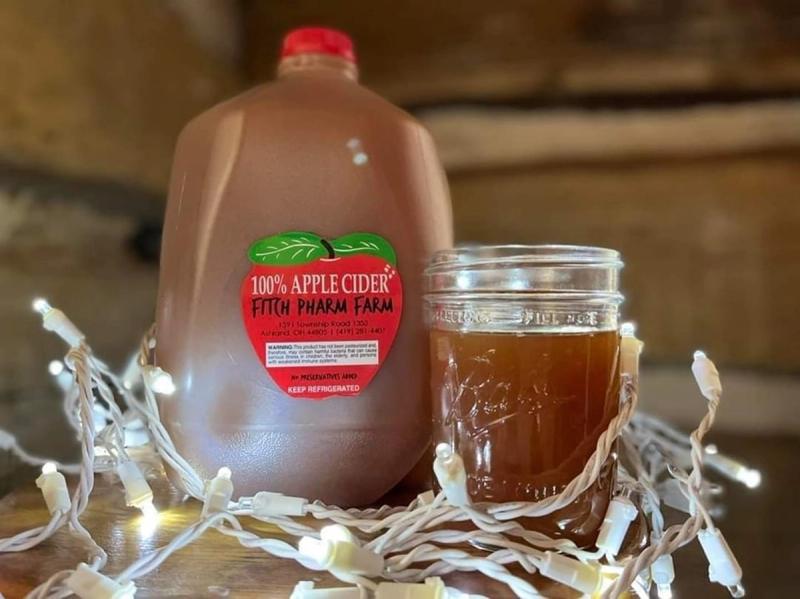
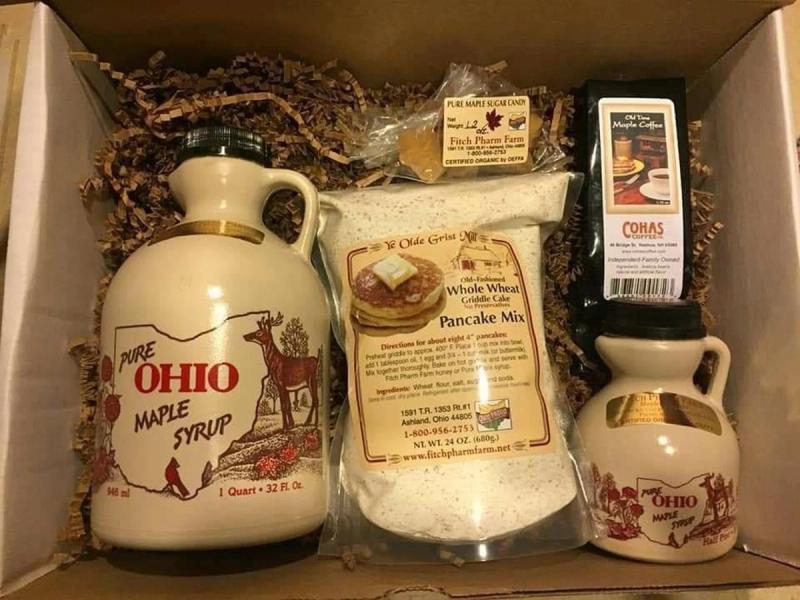
Fitch Pharm Farm
1591 Township Rd 1353
Ashland, OH 44805
800-956-2753
Store open 10 a.m. - 6 p.m. Mon - Sat.
Tags:Weekend Farmer

Acreage Life is part of the Catalyst Communications Network publication family.













